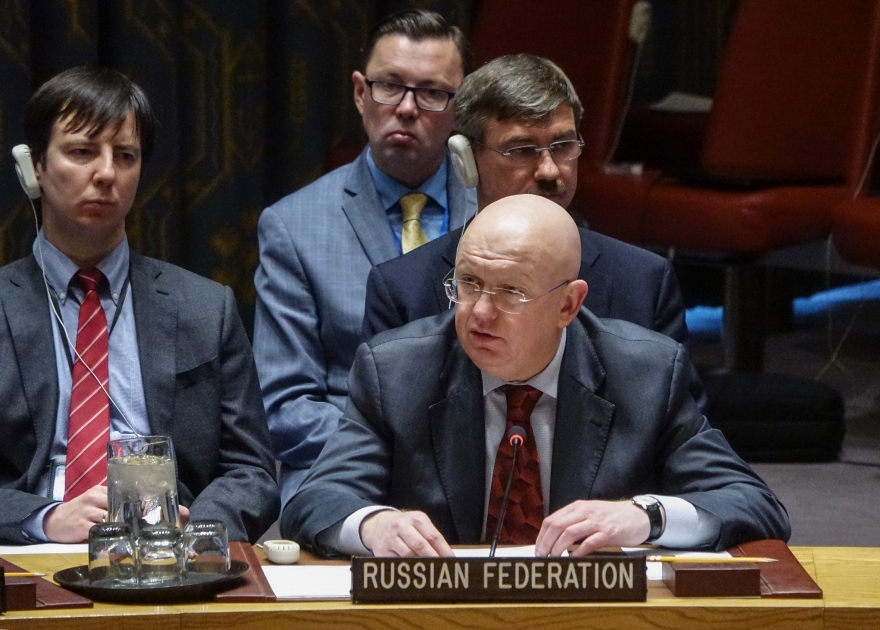Statement by Ambassador Vassily A. Nebenzia, Permanent Representative of the Russian Federation to the United Nations, at the Security Council meeting on the situation in Myanmar
We would like to thank Under-SecretaryGeneral Feltman and Ms. Pramila Patten, Special Representative of the Secretary-General on Sexual Violence in Conflict, for their detailed briefings.
For our part, we note that the security situation in Rakhine state and its environs has stabilized to a degree. This was evidenced by the announcement on 27 October that the numbers of military personnel deployed there as part of a special operation were being reduced. We note the efforts that the Government of Myanmar has undertaken in line with the recommendations of Kofi Annan’s international Advisory Commission.
The process of issuing the Muslim minority with national identification cards is under way. The affected areas are receiving humanitarian assistance and access to those areas for representatives of the diplomatic corps, United Nations bodies and the media is improving.
Our position on the issue remains the same, which is that there is no possible alternative to resolving the complex issues in Rakhine state, which are based on historical, socioeconomic, cultural and religious factors, other than by exclusively political means and establishing a dialogue between the representatives of all ethnicities and faiths.
We call on all parties to refrain from violence, and we underscore the need to respect Myanmar’s national sovereignty. In that regard, we firmly condemn the murders by extremists of Muslims who were working actively with the authorities to settle the conflict. The steps being taken to establish a constructive dialogue between Naypyidaw and Dhaka, particularly the agreement reached on 23 November on the voluntary repatriation of refugees, must be supported.
We hope that both sides will intensify their efforts to ensure that this is implemented in practice, especially since the exodus of Muslim refugees to Bangladesh is still continuing, although now on a considerably lesser scale. In these circumstances, it will be important to facilitate efforts to settle the situation in Rakhine state, focus on providing practical assistance to the Government of Myanmar in a spirit of equality and mutual respect and take full advantage of every opportunity for making use of United Nations mediation efforts.
The attempts of a number of countries to put more pressure on Naypyidaw — such as, for instance, in the resolution adopted on 5 December at the special session of the Human Rights Council on the situation of the minority Muslim population (A/HRC/RES/S-27/1) — are clearly not helping those efforts. In our view, it is essential to refrain from counterproductive accusations and condemnations of Myanmar and to avoid politically and emotionally tinged speculation about the alleged genocide of Muslims.
In our view, what is needed most of all in order to agree on a settlement of the situation of mass movements of people across the Myanmar-Bangladesh border is goodwill on the part of both States.
Unfortunately, it will be impossible to resolve matters if the two of them cannot come to a rapprochement on this age-old problem, whose foundation was laid in the previous century by a colonial administration, with its arbitrary drawing of borders and shifting of populations from one part of its colonial dominions to another. The role of the international community, including the United Nations, should be to assist bilateral efforts to surmount this crisis and its consequences.
